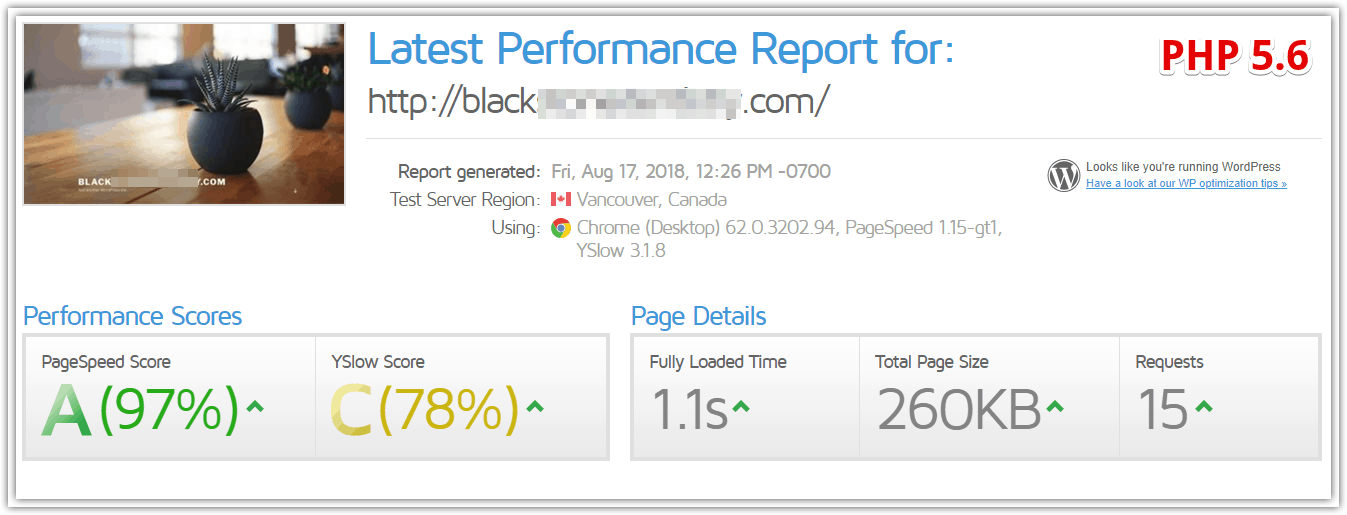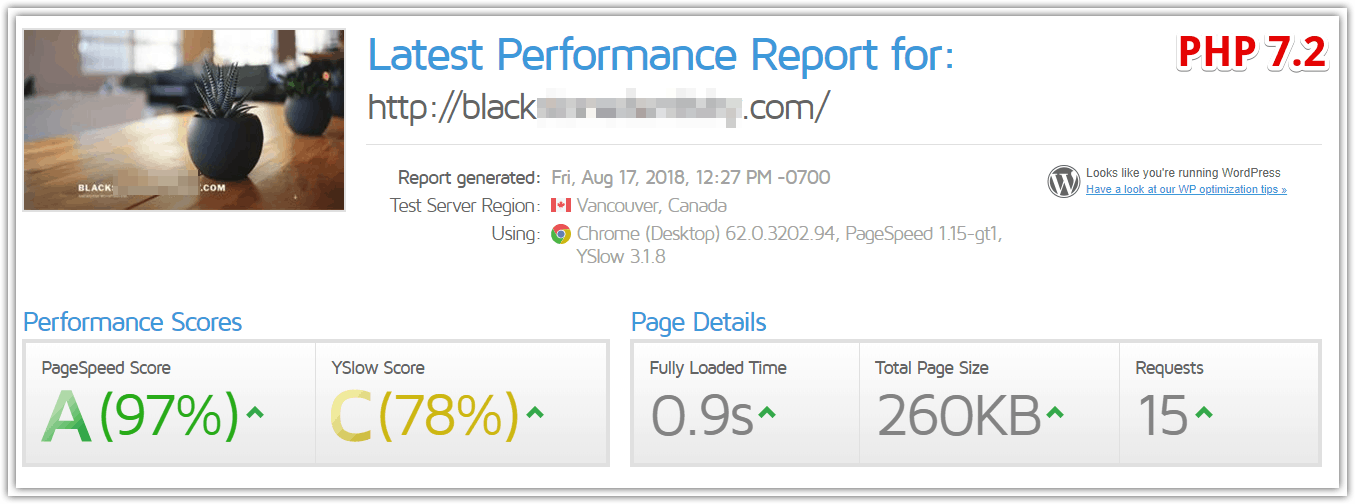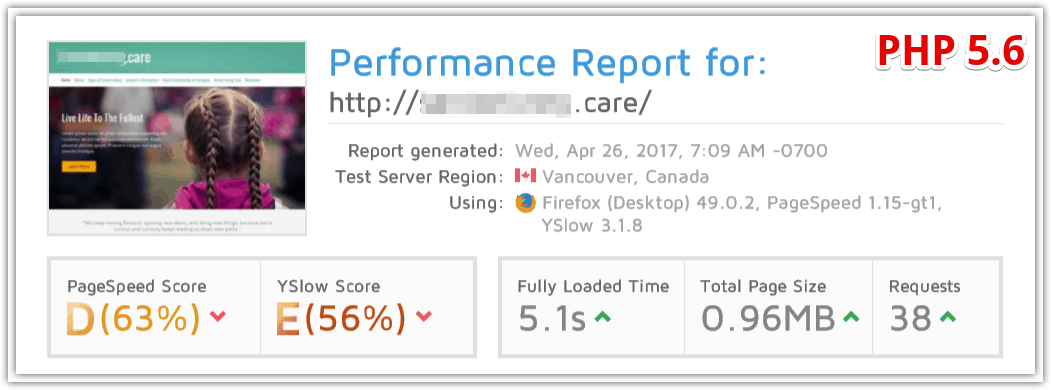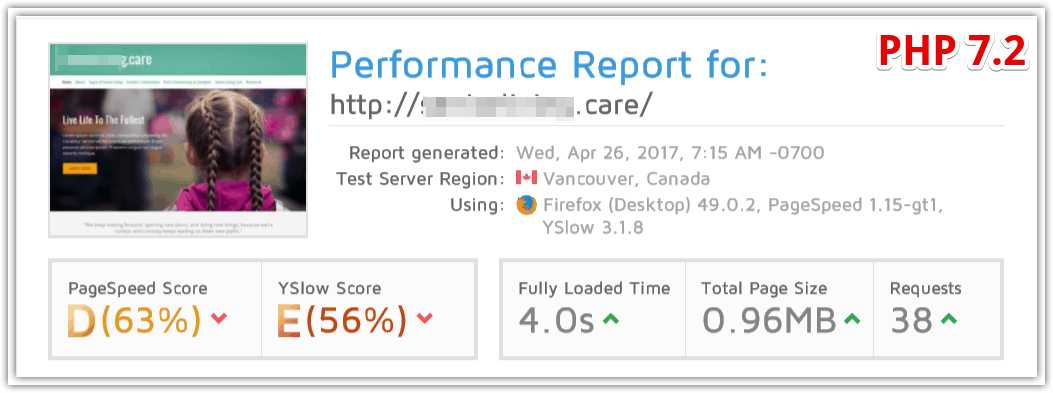Before we get to “the why” of your version of PHP matters, a quick note about PHP…
Wikipedia Describes PHP as:
“PHP: Hypertext Preprocessor (or simply PHP) is a server-side scripting language designed for Web development, but also used as a general-purpose programming language”
https://en.wikipedia.org/wiki/PHP
Basically, PHP is the programing language much of WordPress is written in, and it’s part of many tools that make your WordPress website work. Thankfully with WordPress, you don’t have to know anything about PHP or how to write it in order to use the platform.
The only PHP thing you should ever have to deal with is the version number your site is running on. There have been a few major versions of the last few years. Your hosting provider may offer versions including 5.4, 5.5, 5.6, 7.0, 7.1, 7.3, 7.4, and most recently 8.0.
If your host doesn’t offer a choice, then it’s definably worth contacting them. WPMU DEV has a very thorough guide to the why and how of updating PHP with WordPress. The guide goes into a lot more detail than I have here.
Each version of PHP offers improved security, relatability, and most importantly performance. While security is super important, it’s not nearly as exciting as an increase in performance!

Take A Second Off Your Site Load Time!
Check out the two real-world examples below to see just how much of a performance increase you can get by simply updating your PHP versions.
The first example is a stock out of the box WordPress install running on PHP 5.6 vs running on PHP 7.2
As you can see, the load time went from 1.1 seconds down to .9 seconds.
This isn’t a huge difference, but still an improvement. Stock WordPress is pretty lightweight.
The real improvement shows up when you have the site with some plugins set up.
This second example was on loading a WordPress site that was under development with the Full Beaver Builder stack and non-optimized images or anything performance optimization.
In that case, the Load time went from a painful 5.1 Seconds Down to a slightly less painful 4 Seconds, so an improvement of 1.1 seconds, which is and was noticeable for sure.
While the evidence here is slightly anecdotal, and I would hardly call running GTmetrix tests once per site a comprehensive data set, I can confidently say that being on the latest version of PHP will make your site faster (as well as more secure and reliable).
If you’re looking for some free and very easy performance gains, check out your PHP version and see if you get an easy boost. If your host doesn’t make it easy to update your PHP version(which they really should!), WordPress has an email template you can use to ask for it https://wordpress.org/about/requirements/
Post updated 2021-09-03
This post was updated in September 2021 to include more recent versions of PHP and the link to the WPMU DEV post about updating PHP in WordPress.




